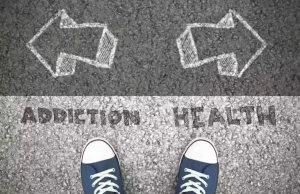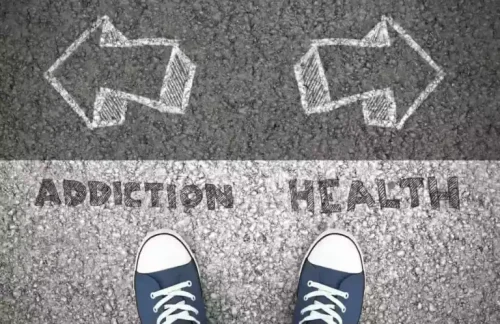
I no longer interrogate him about his day at school, so I can give my wise advice on how to handle difficult peers. I’m not his teacher, and I’m sure she’s skilled at handling that type of problem. Resolve to work at making things better between you and keeping your promises. Give each other space to figure out any new roles within your relationship and take things slowly. Don’t expect immediate forgiveness, and also, don’t pressure yourself to fix every broken relationship immediately. If you promised your father to help him mow the lawn on Sundays, but years have passed, and you’ve Sober living house never once shown up, start now.
- Engaging in the process of making amends can be a profoundly transformative experience for individuals in recovery.
- It’s important to remember that the benefits of making amends may not be immediate, and the process can be challenging.
- Early in my recovery, I learned neither my son nor my husband was listening to anything I said.
- That’s because it attempts to rectify the outward consequences of the disease.
- Although it sounds lofty, there are realistic, achievable ways to implement examples of making amends.
Relationship Journal Prompt Download
In some cases, a combination of both direct and indirect amends may be necessary. What’s most important is that your amends come from a place of genuine remorse and a sincere commitment to personal growth and healing. Some people will be easier than others to approach due to the relationship you have with them, how close you live to them, or other factors. In some situations, attempting to make amends may cause more harm than good.
My experience here at Silvermist was a lifesaving opportunity and blessing
Your sponsor will help guide you through each specific situation. In pursuit of healing, you must take a critical microscope to the examination of your life before you give it to your higher power. Your loved ones and relationships felt the ripples of your addiction, so now is the time to consider that impact on them. Make a physical list of the harm you caused (whether intentional or not) and categorize it by living amends impact. The text focuses on the process by which step 9 helps us evolve from selfish to more altruistic individuals.

What is making amends in addiction recovery?
- In simple terms, it means taking responsibility for the person you used to be and how you caused harm to the people in your life who care about you.
- Step 9, often seen as one of the most challenging, requires courage, humility, and guidance.
- Or because of my drug use I ….” have no place in this process.
If the other person forgives but acts poorly, it’s okay to not reconcile. Even though a person says they forgive, they might not be ready to reconcile. Through diligent work, you have made steady progress in admission, accountability and surrender of the power addiction once held over you. Making amends does not necessarily depend on your ability to connect with a person or how they respond to you. To learn more about addiction recovery, including AA, reach out to Silver Mist Recovery. Making amends is challenging, but the outcome can be one of the most rewarding parts of recovery.
- Their parent may feel more pain for their addicted child’s inability to get sober than the material items lost due to the thefts.
- The unfortunate truth is that we’re all human and we all fall short sometimes.
- It involves direct contact with the individual you have harmed.
- In sum, when recovering alcoholics reach step nine, they are completely connected to their Higher Power.
- My only goal right now is to acknowledge the harm I caused and do what I can to make amends, if that’s possible.
When you make amends, you acknowledge and align your values to your actions by admitting wrongdoing and then living by your principles. On the surface, making amends might sound as simple as offering a sincere apology for your treatment of others, but there’s more to this cornerstone Twelve Step practice. When I first came to recovery, I was certain steps 8 and 9 would be a breeze. After all, I hadn’t hurt anyone (Step 8), so I didn’t need to make any amends (Step 9). In fact, every day I make a living amends to my husband, son, Mom, and brother Ricky. Sometimes, it’s necessary to make amends to employers or co-workers.
Many alcoholics in early sobriety struggle with how to make direct amends for certain offenses against others. To help, we’ve compiled a list of examples of making amends in recovery that deal with ambiguous scenarios. Step 9 also allows one to =https://ecosoberhouse.com/ practice the processes of self-reflection, accountability and making amends, all key components the next step, Step 10. By proactively and “promptly” admitting wrongs, those in recovery may be able to prevent future conflicts that could trigger a lapse in unhealthy behaviors or a return to use. In Step 9, participants acknowledge the negative impact their addiction had on others and commit to direct amends where possible. True amends go beyond apologies; they involve sustained change.
Promises to do things differently
The eighth step then helps the individual prepare to accomplish step nine. The beauty of this process for newcomers and those unsure of where to go next is that their recovery from alcoholism is outlined in twelve in-depth action steps. Many alcoholics are guided through the steps by a sponsor, but some individuals complete the steps on their own. AA’s step work has been adjusted for use in other addiction recovery programs, such as sex addiction or drug addiction. Overall, the step of making amends in AA encompasses the program’s mission to heal the emotional and spiritual aspects of alcoholism while also diminishing the physical and mental side effects of addiction.
Fulfill your promises.
As with alcohol and other drugs, we are also powerless over other people. We cannot control how others respond, whether they will forgive or whether they will hold on to negative feelings or resentments. No matter how much we feel the need to make things right, forcing another to meet with us or hear from us is not part of the Steps.

Making Indirect Amends
And in some cases, you may not be able to make direct amends at all. However, you can still take action in all of these situations to satisfy the spirit and the intent of Step 9 and progress in your step work. When held in the bonds of an addiction, it’s not uncommon for many relationships to feel strain, or to fall apart together.
Tips To Empower Your Deeply Feeling Child

And contributing to your community, you are making amends every day. This shows others, and more importantly yourself and your Higher Power, a commitment to doing good and avoiding destructive behavior in the future. It’s essential to be thoughtful and considerate in your approach. How you start these conversations depends on your relationship with the person you harmed and the circumstances in which you plan to make direct amends. When making direct amends, it is usually best to do so after a sustained period of sobriety and while in a calm state of mind.
Leave A Reply (No comments So Far)
No comments yet